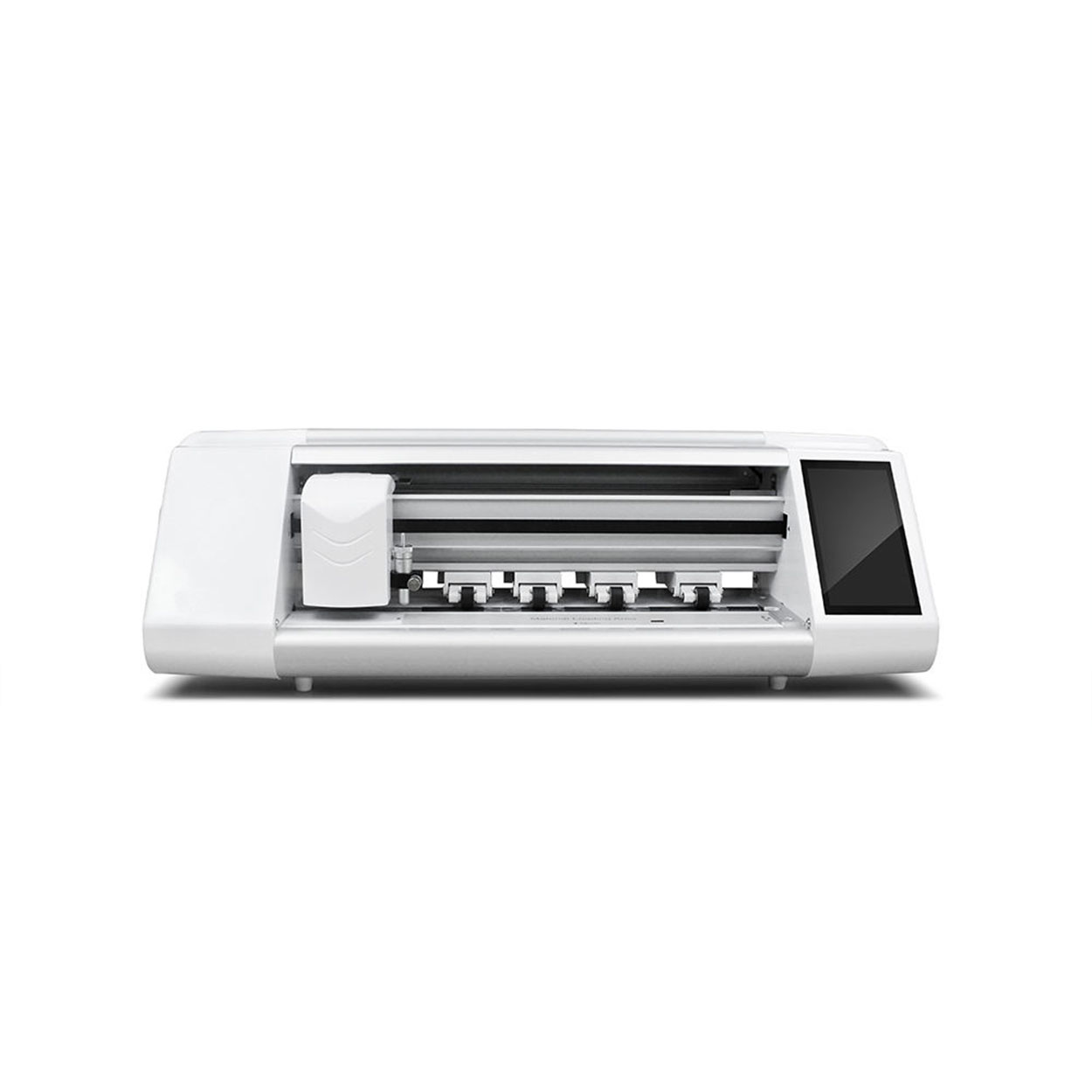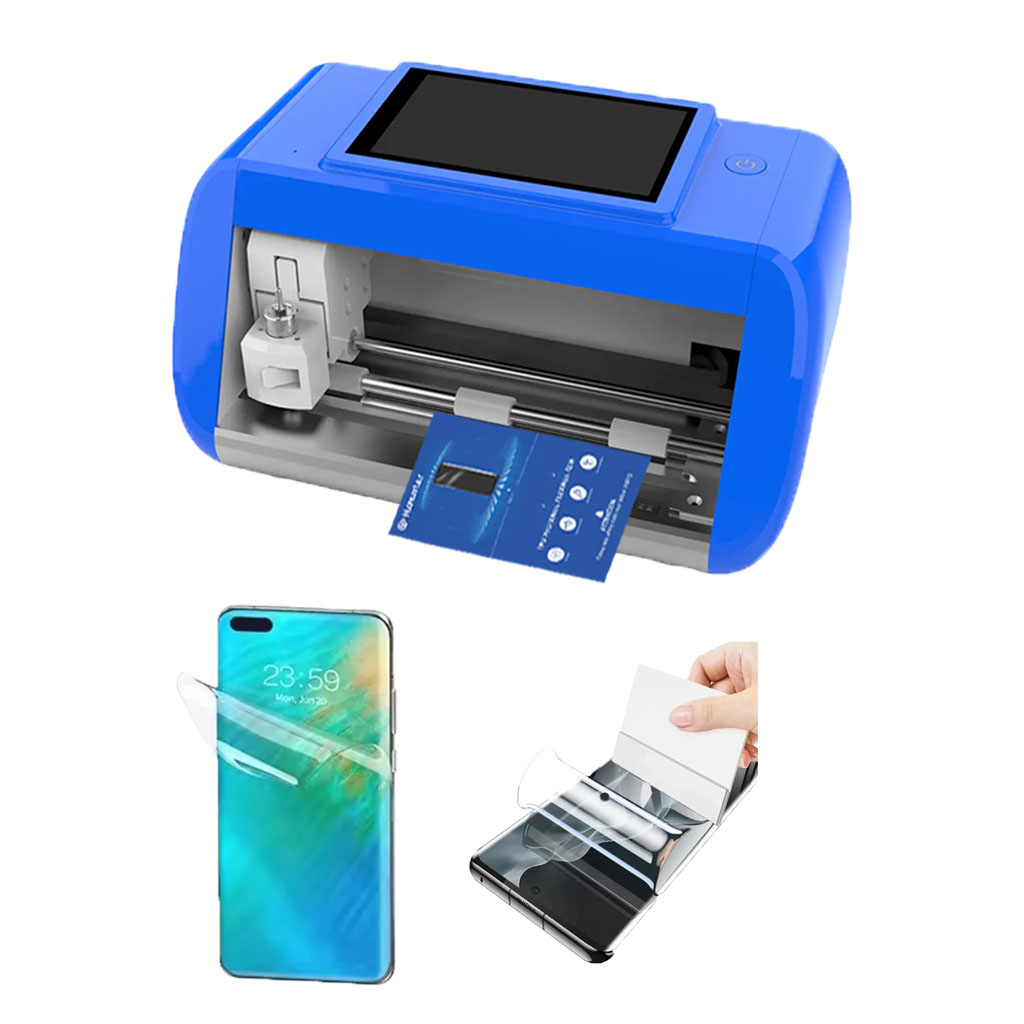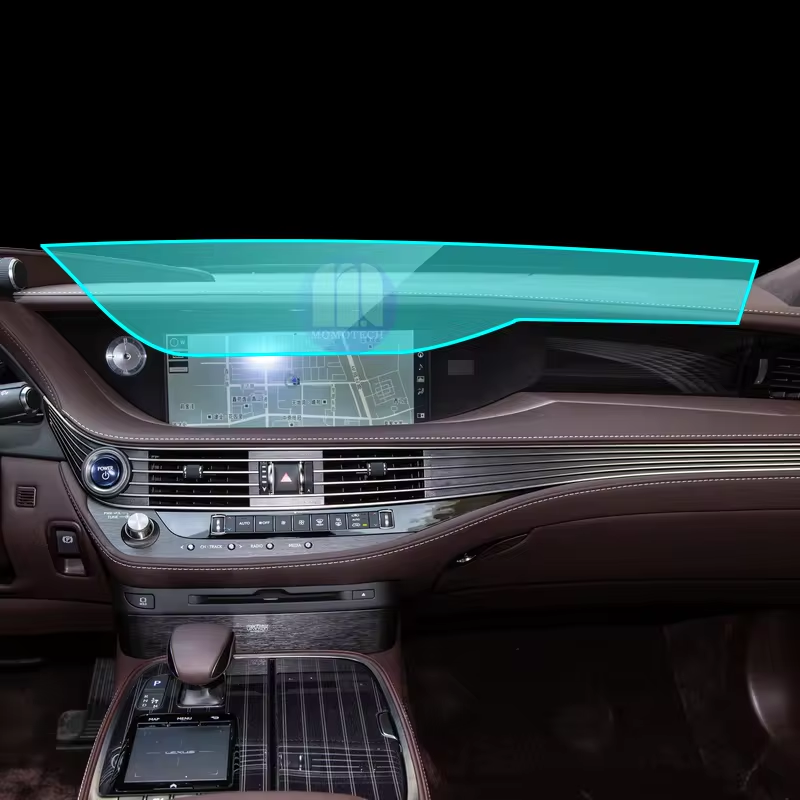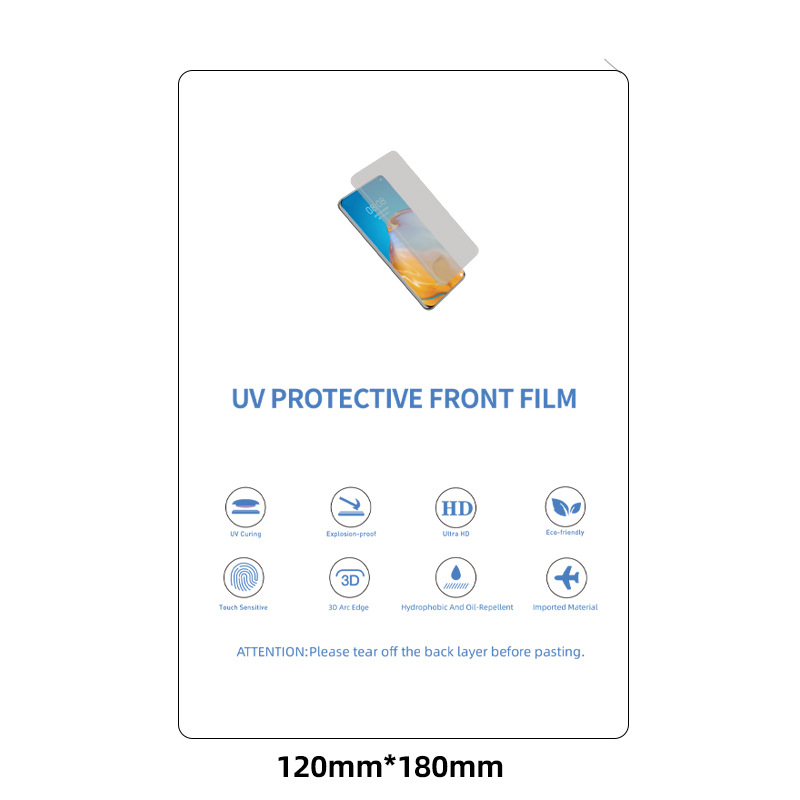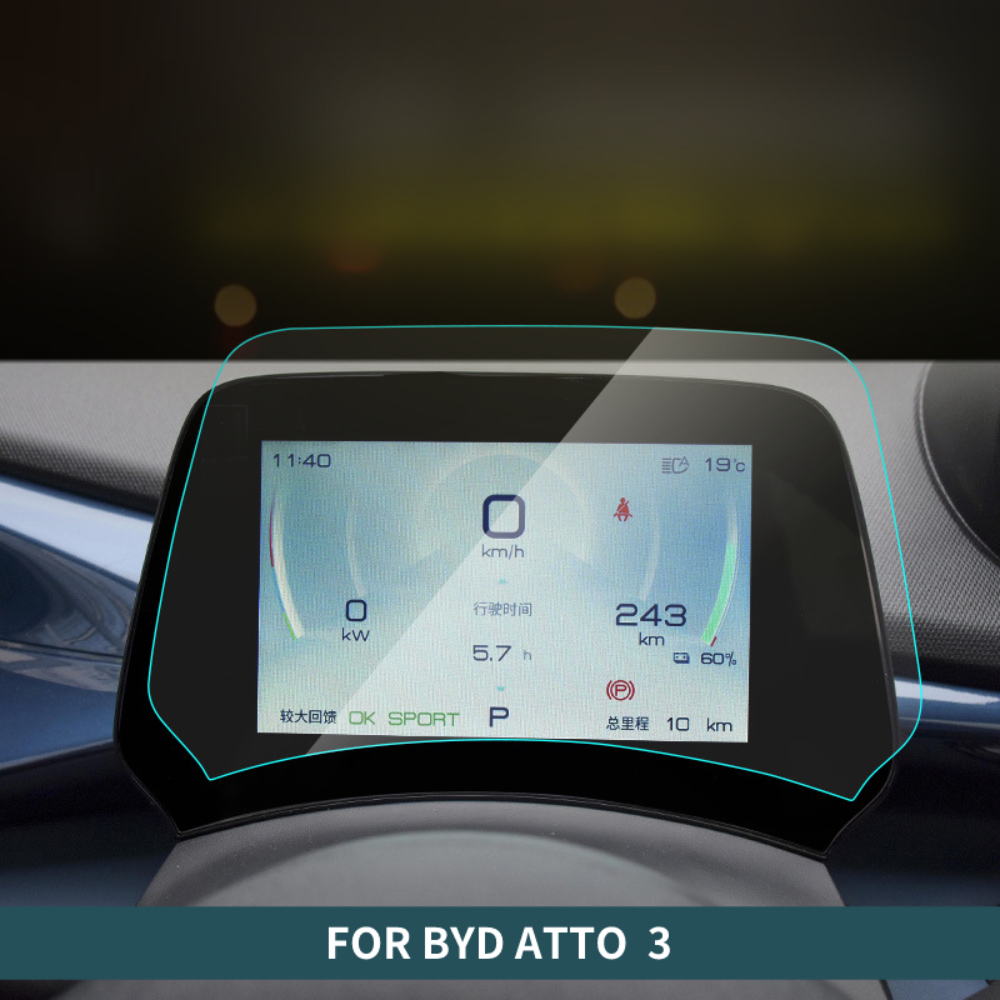
Smart Privacy Screen Cutting Machines for Retailers: Boosting Customer Satisfaction
Table of Contents
Extract
Summary
Smart privacy screen cutting machines are cutting-edge devices designed for retailers to create customized privacy screens for smartphones, tablets, and wearable devices. By leveraging advanced technologies, these machines enhance operational efficiency and customer satisfaction through personalized customization, rapid service, and a comprehensive cloud database that supports thousands of device models.
As retailers strive to meet the evolving demands of consumers, these machines represent a significant step towards integrating innovation into the shopping experience. The growing adoption of smart privacy screen cutting machines is notable due to their impact on the retail landscape, particularly in a post-COVID-19 environment where hybrid shopping experiences are increasingly preferred. They allow retailers to streamline operations, reduce costs, and improve service delivery, aligning with the industry’s shift towards technology-driven solutions. These machines facilitate faster, personalized customer interactions, which are essential for enhancing the overall shopping journey and fostering loyalty among consumers. Key features such as intelligent cutting technology and cloud integration ensure that retailers can produce high-quality screen protectors with minimal waste and maximum responsiveness to customer needs. Moreover, the ability to customize back films with unique designs appeals to consumers seeking individuality, thereby creating a competitive advantage for retailers in a crowded market. However, the implementation of these machines is not without challenges, as retailers must navigate issues related to technology integration, employee training, and adapting to customer preferences in an omnichannel environment. As the retail sector continues to evolve, the role of smart privacy screen cutting machines will likely expand, shaping the future of customer engagement and satisfaction in retail settings.
Technology Behind Smart Privacy Screen Cutting Machines
Overview of Smart Privacy Screen Cutting Machines
Smart privacy screen cutting machines are innovative tools designed for retailers to create customized privacy screens for various devices, including mobile phones, tablets, and smart wearable devices. These machines leverage advanced technology to ensure efficiency, precision, and flexibility in screen protector manufacturing, contributing to enhanced customer satisfaction.
Key Components
Cloud Database Integration
These machines are equipped with a cloud database that houses over 31,000 mobile phone models, which continuously updates to accommodate new device releases.
This extensive database allows retailers to efficiently cut screen protectors tailored to a wide range of devices without needing constant manual updates.
Personalized Customization
One of the standout features is the ability to customize back films with unique patterns. Users can connect the cutting machine to their computer and printer, enabling real-time printing of personalized designs. This functionality not only enhances product offerings but also appeals to customers seeking individuality in their purchases.
User-Friendly Features
Accessibility and Convenience
Smart privacy screen cutting machines are designed for ease of use, allowing retailers to operate them without time constraints or limitations on cutting materials. This flexibility promotes increased productivity and enables businesses to respond quickly to customer demands.
Intelligent Cutting Technology
The machines employ sophisticated cutting technology that accurately produces privacy screens while minimizing waste. This includes features like easy blade swapping and responsive customer service to assist users in troubleshooting, ensuring a smooth operational experience.

Benefits for Retailers
The integration of smart privacy screen cutting machines within retail environments offers a multitude of benefits that enhance both operational efficiency and customer satisfaction. As retailers increasingly adopt advanced technologies, the implementation of these machines aligns with a broader strategy of leveraging data-driven insights and operational agility to elevate the shopping experience
.
Enhanced Customer Experience
Smart privacy screen cutting machines contribute significantly to improving the overall customer journey. By providing seamless service and personalized interactions, these machines help retailers deliver on the critical value dimensions of convenience and entertainment
. For instance, consumers can enjoy quicker service with reduced wait times, enabling them to accomplish their shopping tasks more efficiently. This aligns with the desire for timely and effective service, as retailers can better meet customer needs by utilizing advanced technology.
Increased Operational Efficiency
The operational benefits of smart privacy screen cutting machines are considerable. Retailers can dramatically reduce costs and improve efficiency, which is essential in a retail landscape increasingly shifting towards online channels. By automating certain processes, these machines enable staff to focus on more complex customer interactions while simultaneously enhancing safety and customer satisfaction in-store
.
Strengthening Customer Loyalty
Moreover, the introduction of such technology plays a role in fostering customer loyalty. By enhancing the customer experience and streamlining operations, retailers can cultivate a more enjoyable shopping environment that encourages repeat visits
. Research indicates that satisfied customers are more likely to recommend a brand and remain loyal over time, further underscoring the importance of adopting innovative technologies.
Supporting Omnichannel Strategies
The implementation of smart privacy screen cutting machines also aligns with retailers’ goals of delivering omnichannel support. As customers increasingly expect a seamless experience across different platforms, the ability to utilize such technology allows retailers to respond to customer needs more dynamically and effectively
. This integration is vital for improving customer satisfaction and retention rates in an ever-competitive market.
Market Trends
The retail landscape is undergoing significant transformation, particularly in the wake of the COVID-19 pandemic, with a pronounced shift towards hybrid shopping experiences that integrate both online and in-store interactions. As noted by the National Retail Federation (NRF), brick-and-mortar stores continue to play a crucial role, accounting for approximately 70% of total retail sales, despite the growing popularity of e-commerce
. A survey from Momentive highlighted that 56% of adults prefer to shop using both online and in-store methods, signaling a clear consumer preference for multichannel shopping options. Amid this backdrop, the retail industry is adapting to economic uncertainties and changing consumer preferences. Retailers are exploring various strategies, with 44% considering price increases as a primary measure to navigate potential downturns. This reflects a delicate balance between sustaining business needs and maintaining customer satisfaction. Furthermore, technology plays an increasingly vital role in enhancing customer experiences. New retail technologies are not only aimed at convenience but also at creating value for consumers. Retailers are being encouraged to personalize the shopping experience, a priority identified by 95% of retail CEOs according to a survey by Periscope-McKinsey. Innovations such as smart carts and digital self-service options are emerging to meet these evolving consumer demands, facilitating a seamless shopping journey that bridges online and offline environments. Moreover, advertising strategies within retail are shifting, with physical stores and websites becoming critical platforms for vendor marketing. This trend includes selling ad space across various mediums, including mobile applications and streaming services, which are increasingly lucrative avenues for revenue generation. As retailers navigate this complex landscape, the focus remains on integrating technology and service innovation to foster customer loyalty and satisfaction.

Case Studies
Participant Observation in Autonomous Retail
A participant observation-based case study was conducted to explore the development process of a smart system designed for autonomous retail environments. Utilizing action research methodology, this approach facilitated a collaborative exploration of customer experiences through an interactive cycle of planning, acting, observing, and reflecting. This iterative process was essential in identifying the factors that enable the system to predict customer behavior effectively in an autonomous store setting
. The study highlights considerable opportunities for improving customer engagement by enhancing the system’s ability to identify customer characteristics and understand behavioral patterns, thereby sustaining an enriching shopping experience.
Impact of Innovative Technologies on Shopping Experience
Another case study involved qualitative research to examine how innovative technologies influence customer shopping experiences. Through focus groups and in-depth interviews, the study identified three critical factors impacting customer experience: channel choice, value dimensions related to convenience and enjoyment, and social interaction. These factors were found to be interrelated, each influencing the others in significant ways
. The findings contribute to customer experience literature by offering a framework that assists managers in navigating the rapidly evolving retail landscape while effectively leveraging innovative technologies to enhance customer satisfaction.
Technological Integration in Retail Environments
A separate case study focused on the successful integration of smart retail solutions, emphasizing the importance of selecting appropriate software and hardware. It was crucial for retailers to evaluate technologies based on scalability and compatibility with existing systems, with a recommendation to start with modular solutions that allow for future upgrades. Partnering with reliable technology integration providers was also highlighted as a vital step in ensuring quality and effectiveness
. Furthermore, the study underscored the human element of technology adoption, stressing the necessity for comprehensive employee training and change management strategies to facilitate a smooth transition to new systems.
AI and Automation in Retail
In the context of automated, AI-enabled services, another case study demonstrated how these technologies can significantly enhance customer experience by accelerating service without requiring additional human resources. The use of automation was shown to support a vast number of customers efficiently while maintaining high service quality through proactive outreach and real-time issue resolution
. This not only streamlines operational processes but also enriches the customer journey, positioning retailers to thrive in an increasingly digital-centric commerce environment. These case studies collectively illustrate the transformative potential of smart technologies in retail, driving improvements in customer satisfaction and operational efficiency.
Future Developments
Advancements in Technology
As the retail industry continues to evolve, the integration of smart technologies into privacy screen cutting machines is anticipated to enhance operational efficiency and customer satisfaction significantly. The adoption of cutting-edge technologies such as artificial intelligence (AI) and machine learning (ML) will allow these machines to better understand customer behavior and preferences, thereby streamlining the shopping experience
. This data-driven approach could facilitate more personalized marketing strategies and improve product offerings, ultimately enhancing customer engagement and satisfaction.
Enhancing User Experience
Future iterations of smart privacy screen cutting machines are expected to incorporate advanced computer vision technology, enabling more interactive and responsive systems in retail environments. By developing rule-based knowledge sets, these machines can improve their quality of service by better recognizing customer needs and preferences in real-time
. This capability will likely lead to a more seamless shopping experience, addressing the rising customer expectations for engaging and user-friendly interfaces.
Focus on Sustainability
As industries become more aware of their environmental impact, future developments will also likely prioritize sustainability in manufacturing processes. By leveraging Industry 4.0 technologies, retailers can optimize their supply chains for greater efficiency, thus reducing waste and enhancing sustainability
. This focus not only improves operational performance but also appeals to eco-conscious consumers, thereby boosting overall customer satisfaction.
Integration with IoT
The incorporation of Internet of Things (IoT) capabilities will further revolutionize smart privacy screen cutting machines. These machines will be able to communicate with other devices, providing a holistic understanding of customer interactions and preferences. This interconnectedness will enable retailers to refine their inventory management and tailor their offerings to meet evolving customer demands, ultimately driving higher satisfaction levels
.
Future Market Potential
The market for smart privacy screen cutting machines is projected to grow alongside advancements in technology. With estimates suggesting significant economic impacts from the integration of industrial IoT and AI across various sectors, retailers can expect substantial returns on investment as these technologies become mainstream
. This growth will not only enhance productivity but will also contribute to a more agile and responsive retail environment, positioning businesses to better meet the needs of their customers.
Comments

Understanding the Cost of Screen Protector Cutting Machines: What to Expect
The growing demand for mobile devices and accessories has made screen protector cutting machines an essential investment for businesses in the industry.
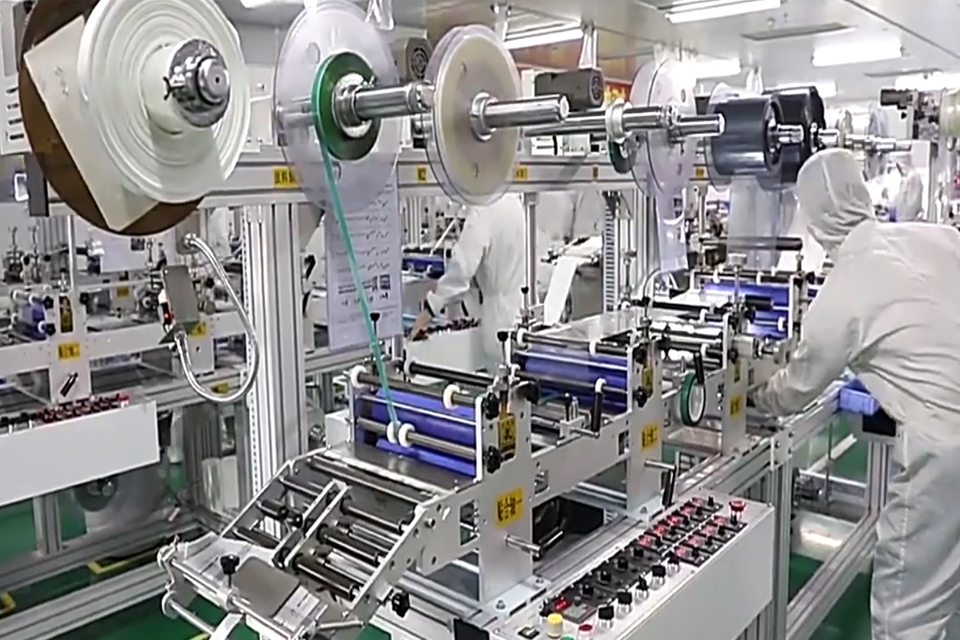
Master the Art: How to Put a Screen Protector on Like a Pro
Are you tired of struggling with bubbles and misalignments when applying a screen protector to your precious device? Look no further! This comprehensive guide will walk you through the process of putting on a screen protector like a seasoned professional. Whether you’re dealing with a tempered glass screen protector or a standard film, we’ve got you covered. Read on to discover expert tips, tricks, and techniques that will ensure a perfect, bubble-free application every time.
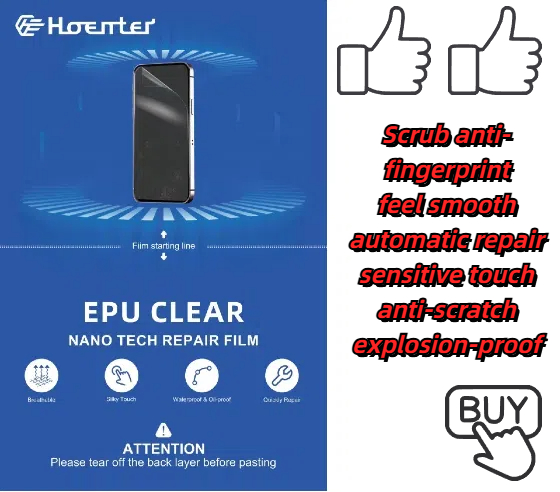
EPU HD Clear Mobile Screen Protector
Get the ultimate clear screen protector! Our EPU HD Clear option offers virtually invisible protection with self-healing and a natural feel.
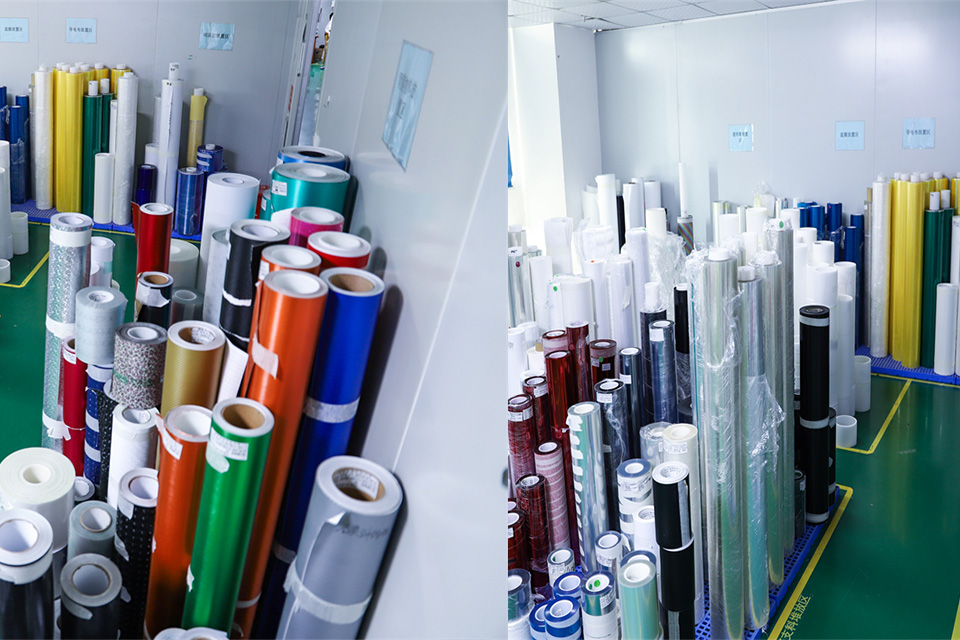
How to Remove Your iPhone Screen Protector: A Comprehensive Guide
Are you struggling with a scratched or bubbled screen protector on your iPhone? Maybe it’s time for an upgrade, but you’re not sure how to safely remove the old one. Don’t worry! This guide will walk you through the process of removing your iPhone’s screen protector, whether it’s a tempered glass or plastic film. We’ll cover everything from preparation to aftercare, ensuring your device’s screen stays pristine throughout the process.

The Role of Innovation in Modern Screen Protector Factories
Innovation plays a key role in the modern screen protector industry, driving industry growth and competitiveness, and enabling product features to be continuously improved to meet the diverse needs of consumers.
Tags
Find All knowledge and trends from our blog, get the wholesale price and best quality from our factory.
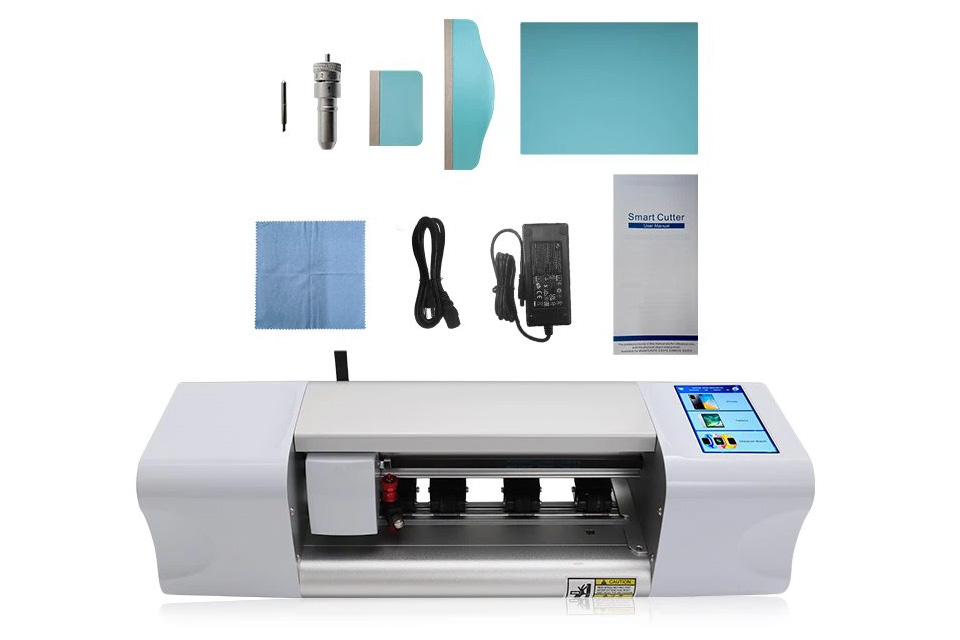
What Film Cutting Machine and Its Application
Film cutting machines have played a crucial role in the evolution of filmmaking and various industrial processes by enabling precise cutting and splicing of film materials.
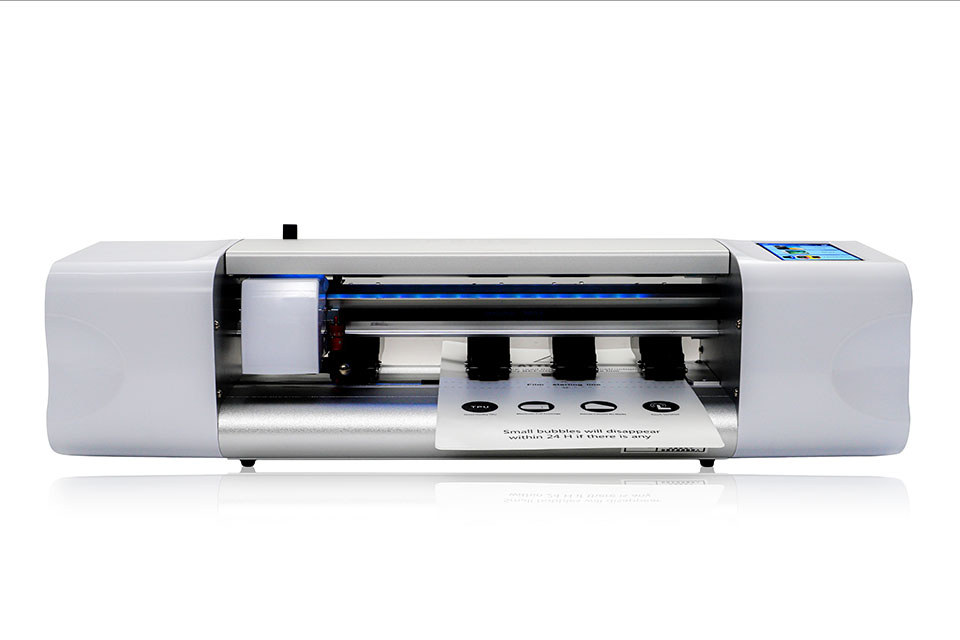
What Is a Screen Protector Cutting Machine?
A screen protector cutting machine is a specialized device designed to produce custom-fit screen protectors for various electronic devices, including smartphones, tablets, smartwatches, laptops, and monitors.
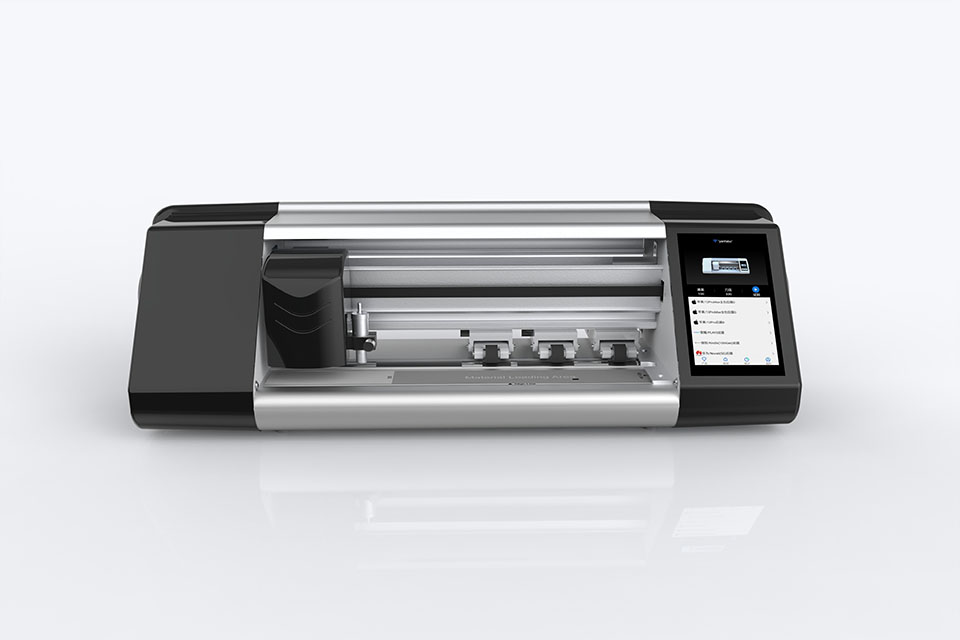
How Mobile Phone Screen Protector Cutting Machine Work?
A mobile phone screen protector cutting machine is a sophisticated device designed
to produce customized screen protectors for various digital devices with high preci
sion and efficiency.
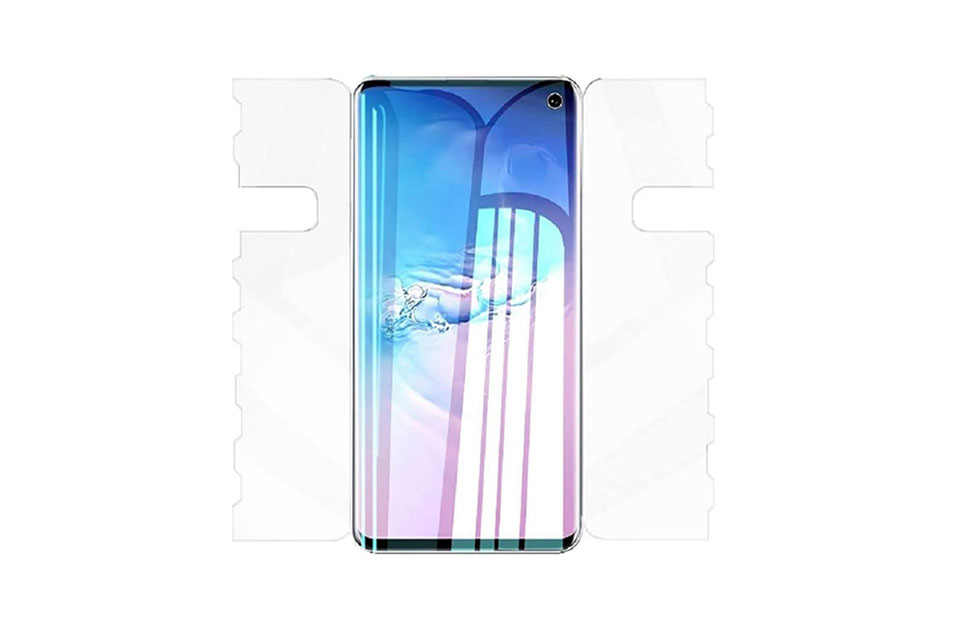
Characteristics of Mobile Phone Tempered Glass and Mobile Phone TPU Screen Protector
Thermoplastic polyurethane (TPU) screen protectors are flexible, durable, and
self-healing plastic films designed to protect electronic device screens from
scratches, impacts, and other potential damages.
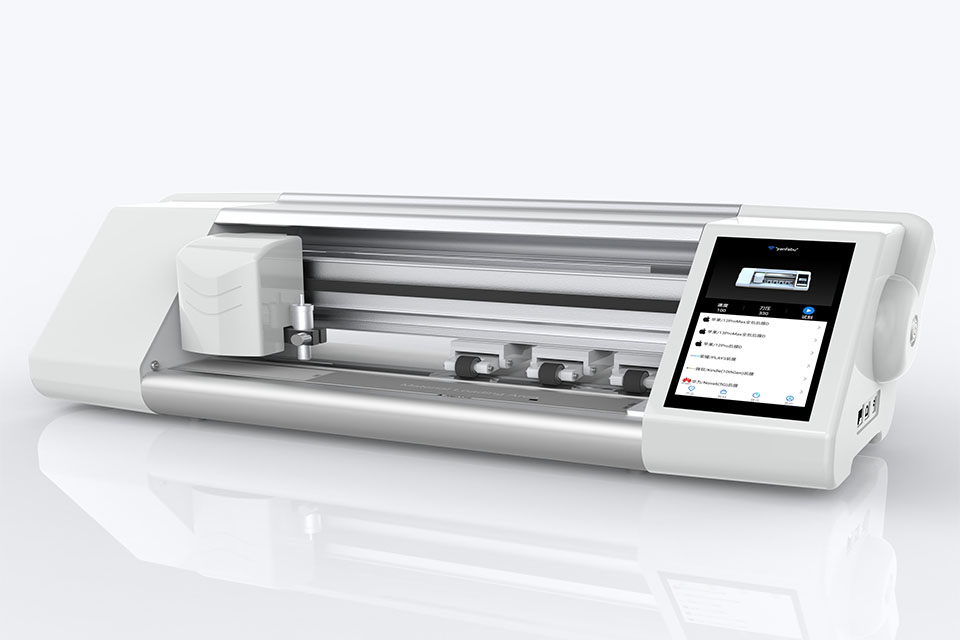
Revolutionize Device Protection with Screen Guard Cutting Machine
Whether you possess a smartphone, tablet, or smartwatch, this versatile machine accommodates a vast array of devices. It seamlessly adapts to the dimensions of your gadget, offering a custom fit that generic protectors can’t match.
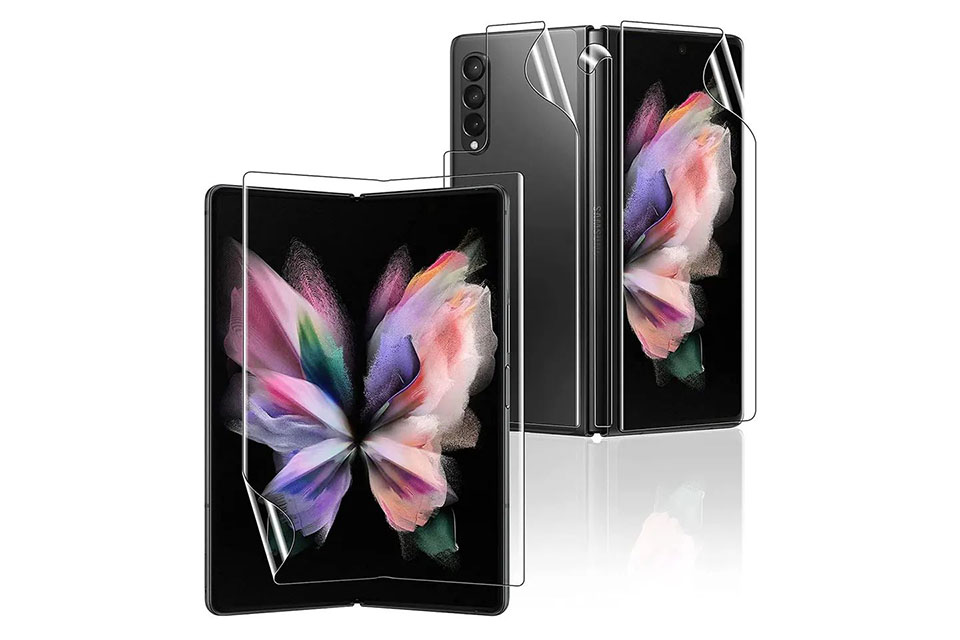
Screen Protector Lifetime Warranty
A screen protector lifetime warranty is a guarantee provided by manufacturers that
promises to repair or replace a screen protector for the lifetime of the product, under specific terms and conditions.

